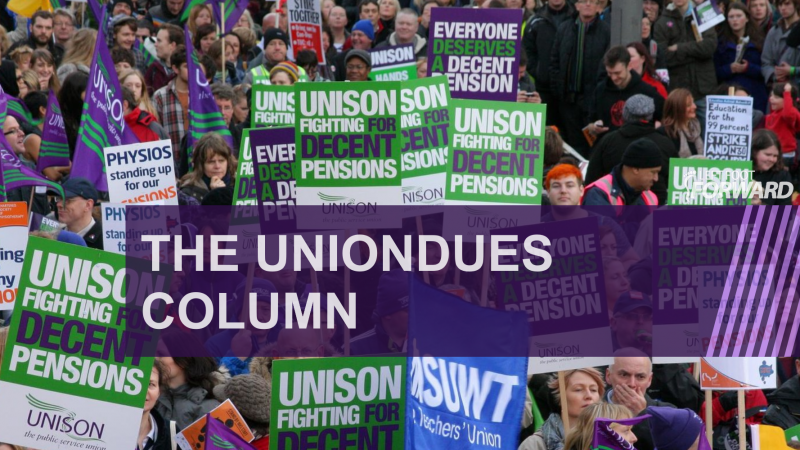What has the shift to working online done to the union movement?

The first comprehensive survey of how union behaviour has been altered by Covid 19 is featured in the latest UnionDues podcast, which drops at noon today.
Tom Hunt of the Sheffield Political Economic Research Institute and Becky Wright from Unions21 argue that while there are many more questions than answers, the willingness to explore and innovate is the true take-away from the pandemic.
The report is awash with practical illustrations of these initiatives – and their sometimes-unplanned consequences. For example, if the justification for holding union conferences “in real life” is to bring people from across the UK together because otherwise they could not inter-connect, video conferencing puts a wrecking-ball through that argument.
And if union democracy can be executed much more cheaply online, think of the resources that could be redirected to, say, organising.
But the survey work also suggests that newer, younger (and implicitly more demographically diverse) union reps felt somewhat lost and disenfranchised in online decision-making events.
Networking, and those soft political and education sessions we know as coffee breaks and fringe meetings, are invaluable components of union democracy that would be at risk in a new, purely virtual world.
So, one key question is how to balance the old and new. But this is just part of a much bigger picture drawn by the report. We are amid a profound crisis and many (if not most) of the pre-Covid culture in both organising and servicing has been replaced, eclipsed or collapsed.
Given that “culture eats structure”, we need to know what we are doing and why before deciding on how we are going to move forward.
And that is the outstanding value that this union research adds. It details what unions have done, for what purpose and with what effect – even though these things are changing as the pandemic continues.
The result so far of all this change and innovation? Increases in membership, activism and membership engagement. 70% are reporting better collective bargaining outcomes. And above all, it’s a validation that innovation is ok.
None of this should be mistaken as a panacea for the challenges unions were and are facing. Some employers are still showing a devasting lack of imagination, with British Gas being the latest to follow BA and Heathrow’s “fire and rehire” catastrophe. Unemployment has climbed steeply with almost certainly worse to come. And of course, the pandemic is frighteningly real. Union members have no exemption from risk, fear, fatigue, illness and even death.
Previous guests of the podcast have likened this to a war, and have asked where a Beveridge figure, with ideas for a post-pandemic society, is to be found. I reckon this report deserves a place in that category.
This week’s podcast sees Mel Simms’s Thought For The Week focus on sick pay and Britain’s culture of presentee-ism. And Left Foot Forward’s own Josiah Mortimer shares his radical round-up of stories you may have missed.
Plus there’s shout-outs to the FBU, Unison, RCN and RCM – all fighting for public safety and a fair deal and for their front line members. Access this and all episodes here.
Simon Sapper is a trade unionist and host of the UnionDues podcast.
Left Foot Forward doesn't have the backing of big business or billionaires. We rely on the kind and generous support of ordinary people like you.
You can support hard-hitting journalism that holds the right to account, provides a forum for debate among progressives, and covers the stories the rest of the media ignore. Donate today.



